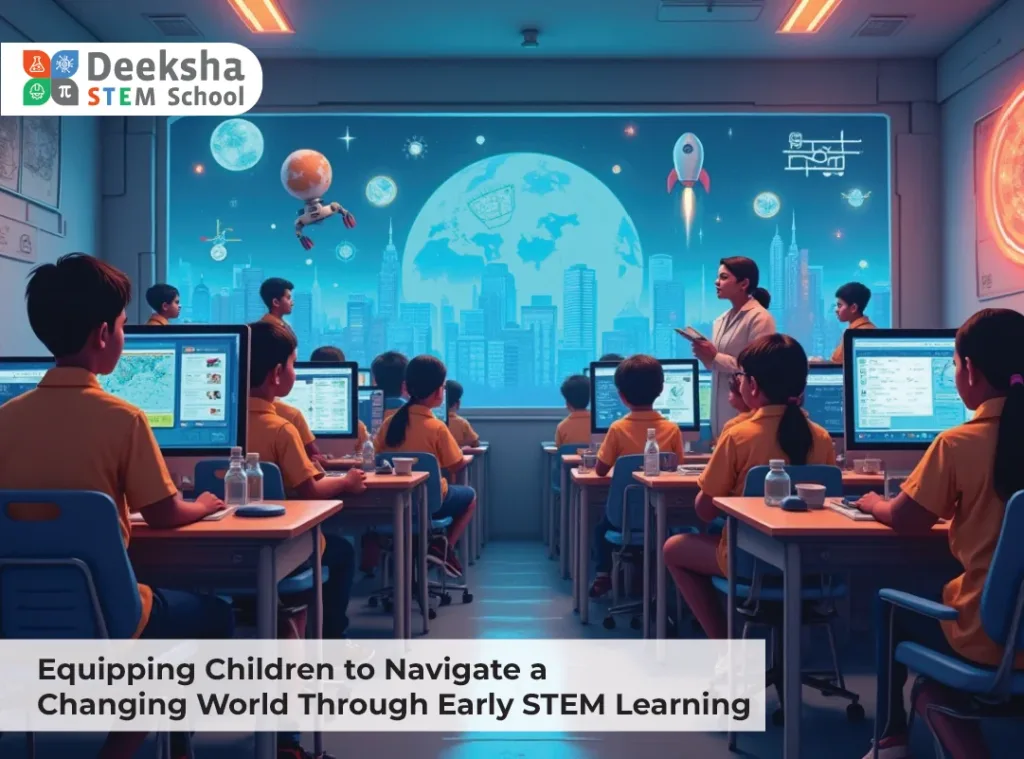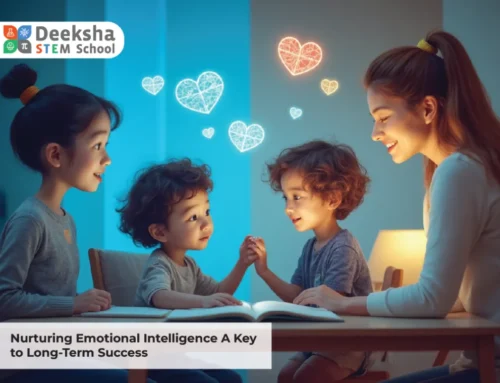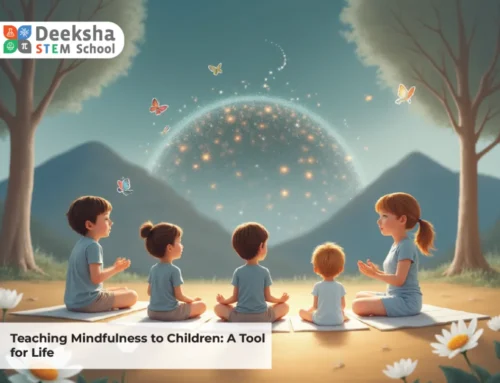In today’s rapidly evolving world, adaptability and problem-solving skills have become essential for success. Early STEM (Science, Technology, Engineering, and Mathematics) education provides children with the tools to thrive in an uncertain future. By nurturing creativity, critical thinking, and technological proficiency, STEM empowers young learners to navigate the complexities of a changing world with confidence. With global challenges such as climate change, artificial intelligence, and renewable energy innovation on the rise, children equipped with STEM skills are positioned to play a pivotal role in shaping a sustainable future.
Preparing for the Future: Why STEM Matters
Adapting to Technological Advancements
As technology reshapes industries, individuals with STEM skills are better equipped to embrace new opportunities. Early STEM education introduces children to foundational concepts in coding, robotics, and data analysis, preparing them for careers that don’t yet exist. For instance, understanding the basics of AI and machine learning early on gives students a head start in fields that are set to dominate future job markets.
Fostering Critical Thinking and Innovation
STEM challenges students to think critically and devise creative solutions. From solving engineering problems to conducting experiments, these activities teach children to analyze situations, make informed decisions, and innovate. By working on projects such as designing eco-friendly devices or building simple software, students develop innovative thinking that can drive impactful solutions.
Building Resilience in a Dynamic World
STEM activities often involve trial and error, teaching children to view setbacks as learning opportunities. This resilience prepares them to tackle the unpredictable challenges of the future. For example, constructing a bridge from limited materials teaches students not only engineering principles but also the value of persistence and adaptation when initial attempts fail.
How Early STEM Learning Shapes Lifelong Skills
Enhancing Problem-Solving Abilities
Hands-on STEM projects, such as designing simple machines or exploring renewable energy, encourage children to approach problems methodically. These experiences build critical problem-solving skills applicable across various domains. Activities like building wind turbines or coding simple algorithms foster a mindset of structured thinking and practical application.
Encouraging Collaboration and Communication
STEM often requires teamwork, helping children develop strong interpersonal skills. Collaborative projects teach them to share ideas, listen to others, and work towards common goals. For example, group tasks like programming a robot for a specific challenge or creating a community garden prototype instill a sense of teamwork and collective achievement.
Promoting Digital Literacy
In a technology-driven era, digital literacy is non-negotiable. STEM education introduces students to essential tools and technologies, such as programming languages and digital simulations, making them comfortable with innovation. From using platforms like Scratch for coding to employing digital labs for experiments, students gain hands-on experience with tools that prepare them for tech-centric careers.
Cultivating a Growth Mindset
STEM encourages students to see challenges as opportunities to grow. By consistently engaging in iterative problem-solving, students build the confidence to explore new ideas and persist despite setbacks. This growth mindset is invaluable in personal and professional contexts alike.
Deeksha STEM Schools: Pioneering a Future-Ready Education
Innovative Learning Environment
Deeksha STEM Schools integrate modern technologies and hands-on projects to provide students with a comprehensive STEM experience. From coding labs to maker spaces, students have access to cutting-edge resources. These environments encourage exploration, creativity, and a deep understanding of STEM principles.
Customized Curriculum
The curriculum at Deeksha STEM Schools focuses on blending theoretical knowledge with practical application. Topics like sustainability, artificial intelligence, and engineering principles prepare students for the demands of tomorrow. With specialized courses and workshops, students can explore areas such as renewable energy systems and advanced coding techniques.
Real-World Exposure
Students engage in initiatives like science fairs, community-driven environmental projects, and tech showcases, giving them the opportunity to apply their skills to real-world challenges. Through these experiences, they not only gain confidence in their abilities but also develop a sense of responsibility towards global issues.
Fostering Leadership Qualities
In addition to technical skills, Deeksha STEM Schools emphasize leadership development. Students are encouraged to take initiative in group projects, mentor peers, and present their ideas effectively—skills that are essential for future innovators and leaders.
STEM and the Changing World: A Call to Action
Empowering Young Innovators
By choosing STEM education, parents empower their children to become active contributors to a better world. STEM equips them with the skills to tackle pressing global issues such as climate change, healthcare innovation, and sustainable development. For instance, understanding environmental science through STEM projects allows students to design practical solutions for water conservation or waste management.
Investing in a Future-Ready Generation
STEM learning is not just about academics; it’s about preparing children to lead in a world where change is constant. Early exposure to STEM ensures they are ready to innovate, adapt, and excel. Whether it’s developing groundbreaking technologies or contributing to community-driven solutions, STEM-educated individuals are poised to make meaningful contributions.
Creating a Lasting Impact
Through STEM, children gain the ability to think critically about global challenges and create solutions that leave a lasting impact. From renewable energy initiatives to technological innovations in medicine, the possibilities are limitless for those equipped with the right skills and mindset.
Conclusion
The world is changing, and early STEM education is the key to helping children navigate this transformation. By fostering critical skills, resilience, and adaptability, STEM empowers students to embrace challenges and seize opportunities. Deeksha STEM Schools are dedicated to shaping future leaders through an innovative and comprehensive STEM curriculum. By investing in your child’s STEM education, you ensure they are equipped to thrive in an ever-changing world and contribute meaningfully to society. Enroll today to give your child a future-ready advantage.






Leave A Comment